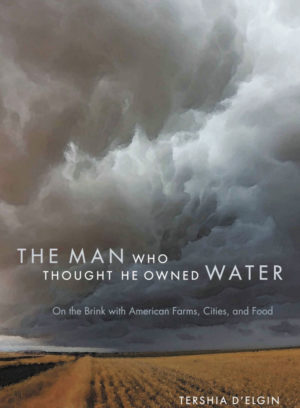By Martha Quillen
Most people think they know the difference between little white lies and huge deceptions; and simple, ordinary facts and profound truths. But do they? Psychologists warn that when verifiable facts collide with our cherished beliefs we tend to disregard the facts. But most of us assume questionable perceptions only sway other people, not us.
And it’s obvious that people judge their rivals and opponents more harshly than they judge themselves and their friends and allies. Rudolph Giuliani, Newt Gingrich and Donald Trump prove that point. Their disgust with Bill Clinton’s indiscretions and Hillary’s enabling is almost comically hypocritical. But does that make it wrong?Clearly that’s a subjective matter, open to interpretation. And so is truth.
In a cosmic sense, there may be absolute, immutable truths, but people judge truth with their hearts and minds, not calipers and algorithms. So in our world the truth is debatable, and so is righteousness. What the public regards as true and important is sometimes a bigger mystery to me than anything Agatha Christie ever wrote.
Take the recent Trump controversies. Why did people find Trump’s salacious talk about dallying with married women more upsetting than his enthusiasm for nuclear proliferation, torture and Putin? Do Americans truly regard his sleazy sexual proclivities as more problematical than his penchant for violating the constitutional rights of native-born Americans who happen to be Muslim or look Mexican?
Now, women are making accusations against Trump, and I suspect most of their allegations are honest. But the various charges haven’t been investigated, and whether they’re true or not, probably aren’t actionable (since many happened in the 1990s). Therefore the “sexual predator” label being bandied about by Democrats strikes me as premature.
And ironic. In 1994, Paula Jones accused Bill Clinton of inappropriate behavior from 1991, and the investigation grew into a massive, on-going, governmental affair. When Clinton was charged with sexual misconduct, his political supporters cried foul, but his political enemies pressed on.
Currently, similar charges are being made against Trump, and Trump’s supporters are crying foul, while the media and Democrats press on, which makes one wonder whether people’s responses to alleged sex crimes have more to do with their party affiliation or with facts.
Now the election is almost here, and the truth doesn’t really matter as much as what citizens think the truth is. And come November lots of people are going to be unhappy, because at this point Americans have embraced diametrically opposed truths.
As for Trump, truth compels me to point out that even if he’s guilty of everything he’s accused of, yet wins, he won’t be the first libertine to inhabit the White House. Numerous presidents have been tainted by sex scandals, as have plenty of other office holders. In fact, the list of “federal political sex scandals” on Wikipedia suggests a sobering truth; sex may be the only thoroughly bipartisan interest our leaders share.
But far more alarming than what we share is what we don’t share: that’s any consensus about what’s true and actually happening. Modern social critics, for instance, credit Trump with being a master of post-truth politics, which suggests a far more serious intent than just trying to glean attention.
The phrase “post-truth” was first coined by blogger David Roberts in 2010 in a piece about Republicans who deny evidence-based arguments. It has since come to describe political appeals that are highly emotional, incite fear and anger, and can’t withstand fact-checking, but are repeated again and again until thousands believe total fallacies.
Post-truth politics reportedly work because the Internet disperses unproven suppositions and crazy conspiracy theories right alongside established truths, and because MSNBC, FOX and Facebook create insular networks of people who share their dubious convictions with one another.
[InContentAdTwo] Most fans of post-truth theory are liberals who regard the phenomenon as a Republican ploy, but some contend it affects most modern societies. Current articles, however, tend to regard Donald Trump as the icon of post-truth politicking. The Economist, for example, tells how Trump embodies that tactic in its September 10-16 edition, which features the “Art of the lie. Post-truth politics in the age of social media.” And The Economist is not alone in crowning Trump the king of post-truth; at least a million posts share that view.
And so it goes. Newspapers and magazines accuse Trump of leading a massive post-truth conspiracy, and Trump accuses the Clintons of evil intent. Liberals accuse Trump of sexual misconduct, and Trump accuses the media of rigging the election in Hillary’s favor. And the electorate’s resentments build.
But my favorite post-truth tirade comes from Sam Kriss (via Slate), who claims the entire idea of post-truth politics in a post-truth era is complete bunk. Kriss starts his piece by broadly lampooning the concept: “We are in very dangerous times of mobs and meaninglessness. People aren’t swayed by facts any more; they’re indifferent to reality … Vast crowds of the pleasure-hungry are being pulled along … by cheap sound bites and tawdry emotions … We’re teetering over the edge … it’s all become theater … You’ve probably heard the name for all this. We are in post-truth politics.”
Then he goes on to show how Plato worried about the same thing, and that John Stuart Mill, Alexis de Tocqueville, Kant and Edmund Burke likewise fretted about the ignorant masses. But it’s Kriss’s conclusion that sings. He muses about concepts of truth and falseness and admits that “politics can give rise to monsters like Donald Trump.” But, Kriss concludes, “When we’re confronted with political evil, our response should be to fight it with something good, not to grumble that it’s getting its statistics wrong.”
Then his thesis soars: the power of politics Kriss contends, “is to imagine something unreal. You can dream of (for instance) a National Health Service, or an end to all war, or the liberation of women … We should be able to say that in a world with enough food for everyone it’s a moral outrage that people are still starving to death. Injustice demands anger – even if, by the cold calculus of pure facts, there’s no end of perfectly reasonable explanations for why the poor must suffer.”
And hallelujah to that.
As I see it, the weirdest thing about post-truth theory is that post-truthers may be the only people living in their post-truth universe, because post-truthers assume Trump supporters don’t know about their candidate’s weaknesses. If they watched FOX News for a few spare hours they’d realize that Trump supporters question their candidate’s knowledge, character, experience, temperament and past. But they like Trump anyway.
Why?
Well, I suspect they like Trump because he likes them, and they don’t think Hillary does. And isn’t that what really sways most voters? People don’t vote for the candidate who wants to fix them, change them or chastise them. They vote for the candidate who promises to give them what they want, and that’s true at the local, state and national level, too.
That’s why I’m voting for Hillary Clinton, because I’m still a left-leaning dreamer who wants to live in a world where we can all get along. This year a lot of people say they’re picking the lesser of two evils, but I’m picking Clinton because she says we’re “Stronger Together.” Wow, what a concept. I like it: one nation, one people, with liberty and justice for all. I’m so glad she thought of that.
Martha Quillen is still undecided about a lot of things, but enjoys contemplating them in the high country, where “beauty is truth, truth is beauty” and we’ve got plenty of it.



